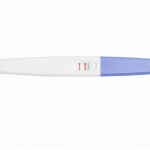Polycystic ovary syndrome (PCOS) is a very common cause of infertility. Women with PCOS often have infrequent periods, decreased or absent ovulation, and can also have unwanted hair growth (eg to face or abdomen) and/or acne. The underlying problem is that of insulin resistance, which (long story short) causes the ovaries to overproduce testosterone. While about half of women with PCOS have a normal and appropriate body weight, the other half have overweight or obesity; also, we know that PCOS gets worse with weight gain and better with weight loss (in those who carry excess weight).
So, a natural question to ask is whether weight loss could improve fertility in women with PCOS and overweight or obesity.
A study was recently published to answer this question. In the study, which was a post hoc analysis of two concurrently run randomized clinical trials, four approaches were compared in women with PCOS, infertility, and overweight or obesity:
- immediate treatment with clomiphene
- birth control pill for 4 months followed by clomiphene
- lifestyle treatment and antiobesity medication for weight loss for 4 months, followed by clomiphene
- birth control pill and lifestyle treatment and antiobesity medication for weight loss for 4 months, followed by clomiphene
They found that women who were treated with clomiphene without weight loss treatment had an ovulation rate of 45%, and a birth rate of 10.2%. These numbers were nearly identical in the women who were on the birth control pill for 4 months before getting clomiphene.
In contrast, women who had lifestyle/antiobesity medication (with or without the birth control pill) had a higher rate of ovulation (63%) and a higher birth rate of 25%. They lost an average of 6.5% body weight in the four month treatment period before receiving clomiphene.
For a woman with PCOS and infertility who carries excess body weight, these finding could present a dilemma: does one go ahead with fertility treatment and hope for the best, or is it better to try to lose weight first, before embarking on fertility treatments? Women are more likely to start thinking about getting pregnant well into their 30s in this day and age, so there may be a palpable time pressure against taking the time to try to lose weight first. An important point to consider is that not only does weight loss improve fertility (as per this trial), but it also decreases the risk of the future child developing obesity and type 2 diabetes. In addition, going into pregnancy with a healthier weight and carrying a healthier weight in pregnancy also decreases the risk of many complications of pregnancy, including gestational diabetes, pregnancy induced hypertension, and babies born large for gestational age (which carries a host of risks and potential complications).
Finally – a note that antiobesity medications must be stopped before attempts to become pregnant, as there is no safety data on these medications in conception/pregnancy.












